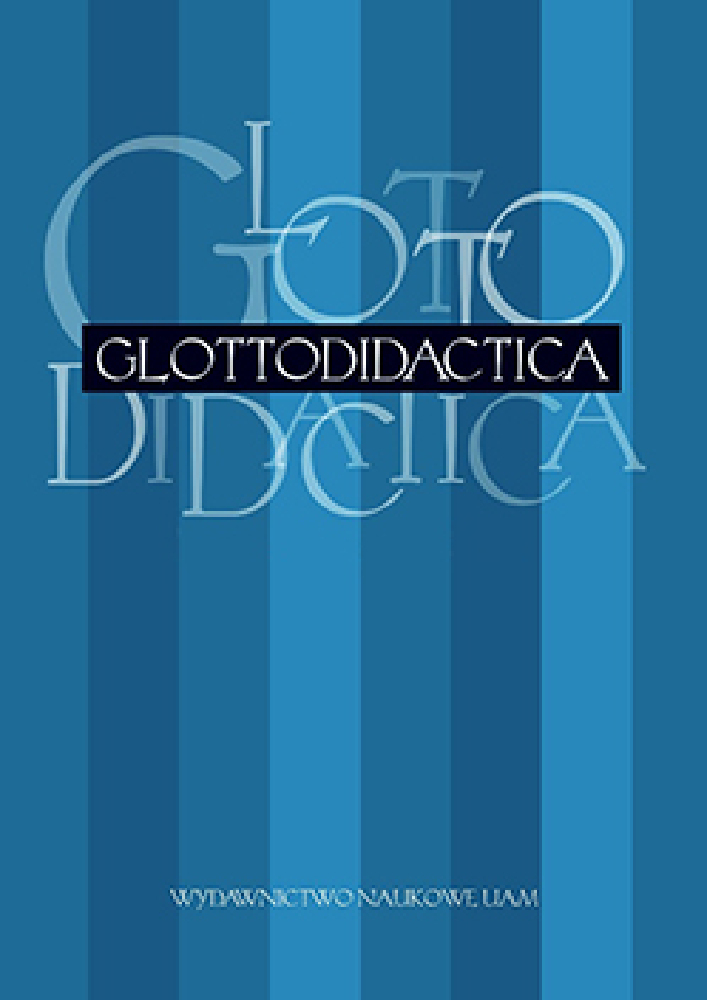Abstract
This article attempts to analyse and compare ELT studies grounded solely in mixed methods and ELT action research studies based on a mixed methods approach in order to identify to what degree action research studies combining different methods in a single study comply with the principles of rigorous mixed methods study.Literaturhinweise
Bryman, A., 2006. Paradigm Peace and the Implications for Quality. In: International Journal of Social Research Methodology 9/2, 111–126.
Collins, K.M.T., Onwuegbuzie, A.J., Sutton, I.L., 2006. A Model Incorporating the Rationale and Purpose for Conducting Mixed-Methods Research in Special Education and Beyond. In: Learning Disabilities: A Contemporary Journal 4 (1), 67–100.
Creswell, J.W., 1999. Mixed–Method research: Introduction and Application. In: Cizek, G.J. (ed.), Handbook of Educational Policy, 455–472. San Diego, USA: Academic Press.
Creswell, J.W., 2005. Educational research: Planning, conducting, and evaluating quantitative and qualitative research. Upper Saddle River, NJ: Pearson Education.
Dörnyei, Z., 2007. Research Methods in Applied Linguistics. Oxford: Oxford University Press.
Gelo, O., Braakman, D., Benetka, G., 2008. Quantitative and Qualitative Research: Beyond the Debate. In: Integrative Psychological Behavior 42, 266–290.
Gorard, S., Taylor, Ch., 2004. Combining Methods in Educational Research. Maidenhead, England: Open University Press.
Greene, J.C., Caracelli, V.J., Graham, W.F., 1989. Toward a conceptual framework for mixedmethod evaluation designs. In: Educational Evaluation and Policy Analysis 11/3, 255–274.
Johnson, R.B., Turner, L.A., 2003. Data collection strategies in mixed method research. In: Tashakkori A., Teddlie, C. (Eds.). Handbook of mixed methods in social and behavioral research, Thousand Oaks: Sage, 297–319.
Johnson, R.B., Onwuegbuzie, A.J., 2004. Mixed Methods Research: A Research Paradigm Whose Time Has Come. In: Educational Researcher, 33/7, 14–26.
Kemmis, S., McTaggart, R., 2005. Participatory action research: Communicative action and the public sphere. In: Denzin, N., Lincoln, Y. (Eds.) Handbook of Qualitative Research. Beverley Hills, CA: Sage, 559–603.
Morse, J.J., Niehaus, L., Wolfe, R.R., Wilkins, S. 2003. The role of theoretical drive in maintaining validity in mixed-method research. In: Qualitative Research in Psychology 3, 279–291.
Onwuegbuzie, A.J., Leech, N.L., 2006. Linking Research Questions to Mixed Methods Data Analysis Procedures. In: The Qualitative Report, 11/3. 474–498.
Schulenberg, J.L. 2007. Analysing Police Decision-Making: Assessing the Application of a Mixed-Method/Mixed-Model Research Design. In: International Journal of Social Research Methodology, 10/2, 99–119.
Tashakkori, A., Teddlie, C., 1998. Mixed Methodology: Combining qualitative and quantitative approaches. Thousand Oaks, CA: Sage.
Tashakkori, A., Teddlie, C. 2003. The past and future of mixed methods research: From data triangulation to to mixed model designs. In: Tashakkori, A., Teddlie, C. (Eds.). Handbook of mixed methods in social and behavioral research, Thousand Oaks: Sage, 671–702.
Teddlie, C., Tashakkori, A. 2009. Foundations of Mixed Methods Research. Thousand Oaks: Sage.
Amuzie, G.L., Winke, P., 2009. Changes in language learning beliefs as a result of study abroad. In: System 37/3, 366–370.
Barkaoui, K., 2007. Rating scale impact on EFL essay marking: A mixed-method study. In: Assessing Writing 12, 86–107.
Chang, L.Y., 2008. The influences of group processes on learners’ autonomous beliefs and behaviors. In: System 35/3, 322–337.
Chen, Y.L., 2008. A mixed-method study of EFL teachers’ Internet use in language instruction. In: Teaching and Teacher Education 24, 1015–1028.
Chiang, M.H. 2008. Effects of fieldwork experience on empowering prospective foreign language teachers. In: Teaching and Teacher Education 24/5, 1270–1287.
Hall Haley, M. 2004. Learner-Centered Instruction and the Theory of Multiple Intelligences With Second Language Learners. In: Teachers College Record 106/1, 163–180.
Mavor, S., 2001. Socio-culturally Appropriate Methodologies for Teaching and Learning in a Portuguese University. In: Teaching in Higher Education 6/2, 183–201.
Mazdayasna, G., Tahririan, T.H., 2008. Developing a profile of the ESP needs of Iranian students: The case of students of nursering and midwifery. In: Journal of English for Academic Purposes 7, 277–289.
Orsini-Jones, M., Jones, D., 2007. Supporting Collaborative Grammar Learning via a Virtual Learning Environment. In: Arts & Humanities in Higher Education 6/1, 90–106.
Rahimi, M., 2009. The role of teacher’s corrective feedback in improving EFL Iranian learners’ writing accuracy over time: is learner’s mother tongue relevant? In: Reading & Writing 22/2.
Soler, A., Rueda, R., Arnó, E., 2005. Students’ profile as autonomous learners in an Internetbased EAP course. In: IBERICA 9, 53–78.
Vásquez, V., Reppen, R., 2007. Transforming Practice: Changing Patterns of Interaction in Post-Observation Meetings. In: Language Awareness 16/3, 153–172.
Lizenz
Authors
Authors of texts accepted for publication in Glottodidactica are required to complete, sign and return to the editor's office the Agreement for granting a royalty-free license to works with a commitment to grant a CC sub-license.
Under the agreement, the authors of texts published in Glottodidactica grant the Adam Mickiewicz University in Poznań a non-exclusive, royalty-free license and authorize the use of Attribution-NoDerivatives 4.0 International (CC BY-ND 4.0) Creative Commons sub-license.
The authors retain the right to continue the free disposal of the work.
Users
Interested Internet users are entitled to use works published in Glottodidactica since 2016, under the following conditions:
- attribution - obligation to provide, together with the distributed work, information about the authorship, title, source (link to the original work, DOI) and the license itself.
- no derivatives - the work must be preserved in its original form, without the author's consent it is not possible to distribute the modified work, such as translations, publications, etc.
Copyrights are reserved for all texts published before 2016.
Miscellaneous
Adam Mickiewicz University in Poznań retains the right to magazines as a whole (layout, graphic form, title, cover design, logo etc.).




